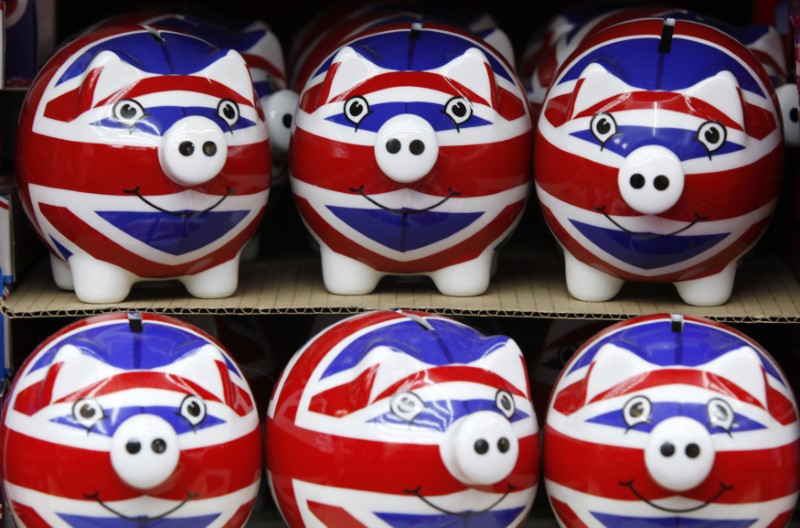LONDON (Reuters) - Inflation ate further into the budgets of British households last month, according to a survey of consumers, adding to signs that households will be feeling under pressure in the run-up to the June snap election planned by Prime Minister Theresa May.
Financial data company IHS Markit said on Wednesday that its Household Finance Index fell to 42.5 in April from 43.1 in March, one of its lowest readings since mid-2014.
While households became a little less pessimistic about the outlook for their finances, they reported the biggest reduction in cash available to spend since August 2014, citing rising living costs and subdued pay growth.
May pitched her surprise announcement of a June 8 national election as a chance to strengthen her hand in talks on separating from the European Union, but the economic outlook will figure strongly in the political debate during the weeks ahead.
The Markit survey suggested that households were reacting to rising prices by cutting savings rather than spending.
"Evidence that consumers are opting to maintain spending rather than belt-tighten provides a positive signal for UK economic growth in the short-term," said Tim Moore, senior economist at IHS Markit.
Some economists think May's decision to opt for an early election may have been influenced in part by a desire to capitalise on Britain's apparent economic strength since the Brexit vote, before it dissipates.
Wednesday's Markit survey added to a string of indicators suggesting that consumers - the main driver of economic growth - are starting to feel the pain of rising prices, fuelled by rising energy costs and the pound's plunge after the vote to leave the EU.
Adjusted for inflation, there was almost no growth in pay of British workers during the three months to February, official data showed last week.
"Households are ... more worried about their financial outlook than at almost any other time in past three years," Moore said.

The survey was conducted between April 12 and April 13.